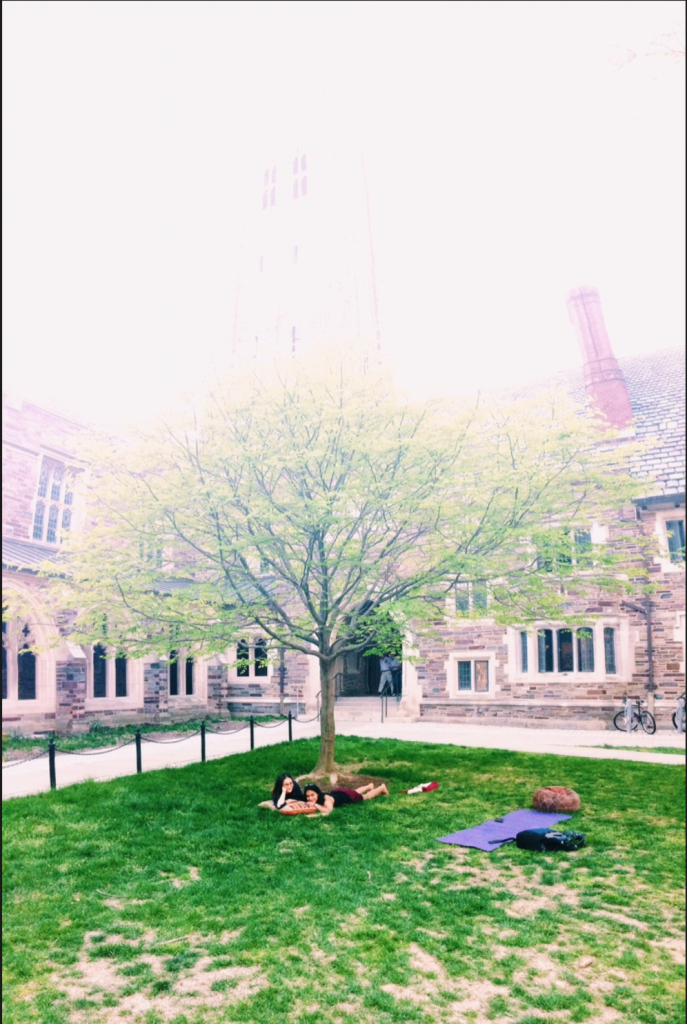At the beginning of last month, my Greek professor forwarded the class an email titled “The Aesthetics of (Greek!) Mathematics!” Within the email, he cheerily suggested that we attend this special lecture event at 4:30pm, “for a reminder of why we still want to learn Greek (and yes, math, too).”
After an afternoon of studying in Holder Courtyard, I dragged a friend along to McCormick to investigate. The Faber lecture, given by Professor Reviel Netz of Stanford University, was hosted by the Interdisciplinary Doctoral Program in the Humanities. Past lectures have also been interdisciplinary in nature, covering topics like “Orality and Sociality” or “Why do we Care about Dead Bodies?”

The first thing I noticed was the diversity of the audience. Graduate students, professors, and a few undergraduates sat together in the room. I immediately recognized my linear algebra professor sitting with an art history graduate student, and behind my current philosophy professor. Next to me sat a group of people chuckling and exchanging jokes, who I later discovered were professors in the Woodrow Wilson School.
The presentation was fascinating. Professor Netz talked about how narrative structures in Greek poetry influenced the style in which Greek mathematicians wrote their proofs. We read excerpts from Euclid and Archimedes, and compared the degrees to which each used surprise as an element in their proofs. My philosophy professor asked a question about Euclid, I asked about math in Sanskrit poetry, and another professor brought up literary theory. It was a stimulating dialogue between voices across the spectra of age and discipline.
After the lecture, I realized that (a) I should choose to attend a few random lectures a month out of the hundreds that barrage my email feed and (b) there are invaluable benefits to participating in conversations where professors of different departments interact with one another. The Faber lecture was an enriching conversation, and a rare interdisciplinary moment on Princeton’s campus. For the 60 or so minutes that it spanned, everyone in the room was thinking about one problem. Being a part of this let me add a new layer to the relationships I had with current and past professors, and later led to some interesting one-on-one conversations in office hours or after class.
Since then, I have been progressively more proactive about going to events on campus that might bring different parts of the Princeton community together (a few weekends ago was the Banff Film Festival and an Indian classical music performance, where I met a geoscience and math professor, respectively.) Whether in the context of brown bag lunch talks on Iran in Green Hall or philosophy reading groups in the Princeton Neuroscience Institute, interdisciplinary dialogue does exist on campus–you just have to find it!
–Vidushi Sharma, Humanities Correspondent

